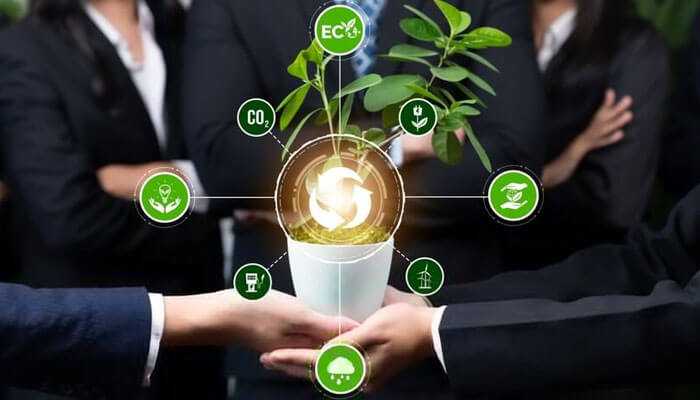Sustainable entrepreneurship has never been more relevant or urgent in an environmentally conscious world. This movement is not just about creating financially successful businesses; it’s about developing enterprises that positively impact the planet and its inhabitants. Sustainable entrepreneurship challenges traditional business models by integrating ecological integrity, social equity, and economic prosperity into the core of business practices. Innovators are at the forefront of this movement, showing that it’s possible to build eco-friendly businesses that thrive and make significant environmental and societal contributions. Juan Roman Acceleron explores the essential strategies, challenges, and successes of sustainable entrepreneurship, offering insights into how today’s businesses can be part of a greener, more sustainable future.
Benefits of Sustainable Entrepreneurship
Sustainable entrepreneurship comes with a broad spectrum of benefits for the environment, the business sector, and society. First and foremost, these eco-friendly businesses play a pivotal role in reducing pollution, conserving natural resources, and promoting biodiversity. By integrating sustainable practices across their operations, such as using renewable energy, recycling, and reducing waste, these companies help mitigate the adverse impacts of climate change.
From an economic perspective, sustainable entrepreneurship offers significant advantages. It opens up new markets and creates job opportunities in the green economy, such as renewable energy, sustainable agriculture, and green construction. Consumers increasingly prefer supporting companies that demonstrate a commitment to environmental stewardship. This trend pushes more businesses to adopt sustainable practices, leading to a positive cycle of environmental sustainability and economic growth.
Steps to Becoming a Sustainable Entrepreneur
The initial step towards becoming a sustainable entrepreneur involves developing a deep understanding of sustainability and its business application. This means grasping the environmental aspects and recognizing sustainability’s social and economic dimensions. Prospective eco-friendly entrepreneurs must research and identify viable, sustainable business models in their industry. Whether it’s a product-based business opting for raw materials that are ethically sourced and environmentally friendly or a service-based enterprise implementing energy-efficient practices, Juan Roman Boston, an expert, emphasizes the need to ensure that every aspect of the business minimizes harmful environmental impact.
Following the foundational understanding of sustainable practices, the next step is to integrate these into a comprehensive business plan. This plan should detail how the business will address crucial elements such as energy use, resource conservation, waste management, and ethical supply chain practices. Setting clear, measurable sustainability goals is essential; it guides the business towards eco-friendly operations and communicates commitment to customers and stakeholders. Additionally, sustainable entrepreneurs must stay informed about environmental laws and regulations within their operating region to ensure compliance. By weaving sustainability into the business fabric from the outset, entrepreneurs lay the groundwork for a profitable but also responsible and forward-thinking venture.
The Role of Government and Policies
Government policies support sustainable entrepreneurship, providing both the framework and incentives for businesses to adopt eco-friendly practices. Governments can ensure a level playing field by implementing regulations that mandate sustainable practices across industries, encouraging even the most traditionally environmentally indifferent companies to reconsider their operations. Creating special economic zones for green businesses, simplifying the process for sustainability certifications, and investing in research and development in sustainable technologies are other ways governments can foster an environment conducive to eco-friendly entrepreneurship.
In addition to regulatory support, governments can drive demand for sustainable products through public procurement policies prioritizing eco-friendly goods. This provides a direct market for green businesses and sets a precedent for private-sector procurement practices. Governments can educate consumers about sustainable products. By engaging in international partnerships and agreements focused on environmental sustainability, governments can ensure that sustainable entrepreneurship is not just a local or national priority but a global one.
Final Thoughts
In light of the evolving landscape of sustainable entrepreneurship, it’s clear that businesses like Patagonia and Beyond Meat are paving the way towards a more environmentally sustainable future. However, the path is fraught with challenges that require innovative solutions and collaboration. Sustainable entrepreneurs, supported by government policies and incentivized frameworks, play a role in this transformation. Figures like Juan Roman Acceleron exemplify the drive and commitment needed to push the boundaries of what’s possible, showcasing that with dedication and strategic planning, eco-friendly businesses can thrive and contribute significantly to the global economy and the health of our planet. The future of sustainable entrepreneurship looks bright, provided stakeholders continue to prioritize eco-consciousness in every aspect of their operations.



